Discover The Cinematologists Podcast
The Cinematologists Podcast

The Cinematologists Podcast
Author: The Cinematologists
Subscribed: 307Played: 3,522Subscribe
Share
© Copyright 2024 All Rights Reserved
Description
Film academics Dr Dario Llinares and Dr Neil Fox introduce a live screening followed by an audience Q&A. The podcast also features interviews with filmmakers, scholars, writers and actors who debate all aspects of cinema and film culture.
199 Episodes
Reverse
In our second episode of the season, we discuss Neil's superb, recently published book Music Films: Documentaries, Concert Films and Other Cinematic Representations of Popular Music.
We explore their significance, evolution, and the complexities surrounding their creation and reception, along with Neil's reflections on the challenges of writing for diverse audiences and the expectations of music fans. The conversation touches on the validity of music films in modern culture, the messiness of the genre, and the importance of representation, particularly regarding black artists and women in music. They also examine the ethical implications of music documentaries and the power dynamics at play in the portrayal of artists.
Neil's book is so comprehensive we couldn't cover everything but some of the films under discussion include Don't Look Back (dir. D. A. Pennebaker, 1967), Lonely Boy (dir. Roman Kroitor and Wolf Koenig, 1962), Whatstaxx (dir. Mel Stuart), The Punk Singer (dir. Kathleen Hanna), In Bed with Madonna (dir. Alek Keshishian, 1991), The Last Angel of History (dir. John Akomfrah, 1996), American Interior (dirs. Dylan Goch, Gruff Rhys), Miss Americana (dir. Lana Wilson, 2020), and many more.
Here's a link to Dario's Substack article: 10 Music Films you may not seen (and are free on YouTube)
You can listen to The Cinematologists for free wherever you listen to podcasts: click here to follow.
Chapters
00:00 Introduction to Music Films and Their Impact
02:37 Neil's Journey with His Book
06:34 The Validity of Music Films in Modern Culture
08:54 Expanding the Canon of Music Films
11:31 The Messiness of Music Films
14:20 Writing for Diverse Audiences
17:23 Navigating the Expectations of Music Fans
19:50 The Balance of Coverage in Music Films
22:55 Exploring Authorial Voice in Music Documentaries
24:14 The Evolution of Music Film Styles
28:40 The Role of Technology in Music and Film
31:49 Gender Dynamics in Music Documentaries
34:31 Exploitation in Music Documentaries
37:28 The Complexity of Artist Representation
39:28 The Importance of Black Artists in Music Films
42:05 The Legacy of Music Documentaries
46:46 Women in Music: A Historical Perspective
50:47 The Power Dynamics in Music Films
55:32 The Ethics of Music Documentaries
___
If you haven't already, please consider becoming a subscriber to our Patreon channel: https://www.patreon.com/cinematologists
We are expanding our output so if you enjoy the show and find value in the work, any support you can give would be very much appreciated. You can become a member for the same price as a coffee a month.
We also really appreciate any reviews you might write (please send us what you have written and we’ll mention it), and sharing on Social Media is the lifeblood of the podcast so please do that if you enjoy the show.
___
Music Credits:
‘Theme from The Cinematologists’
Written and produced by Gwenno Saunders. Mixed by Rhys Edwards. Drums, bass & guitar by Rhys Edwards. All synths by Gwenno Saunders. Published by Downtown Music Publishing.
We are back for the 20th season of The Cinematologists Podcast and our 10th year. Neither of us when we started out could have envisaged that we would have done what we have with the Podcast, spoken to so many fascinating film people and cultivated such a loyal audience.
Indeed, this season represents something of a renewal, as is discussed in the first episode of the season. After taking a break from the last season Dario is back, bringing with him quite a few personal and professional changes that form the basis of a discussion about life, work and cinema.
We reflect on how the context of academia has changed so much in recent years and this has affect how we both view what we do. The also conversation also delves into themes of identity, the value of teaching, and the tension between academia and capitalism, while also highlighting the importance of authenticity and passion in their work. As we look to the future, we are feeling invigorated and excited for new opportunities and the potential even more valuable and joyful experience in making the podcast and bringing to you.
With Dario moving out of his full-time post and into a more freelance space, the Podcast will be aligning with that to some degree. Primarily this means we will be expanding the Patreon channel and hoping to sign up new members.
Another aspect of this is we will offer as many episodes as possible early and in video format on the Patreon. Our plan is to drop the videos as bonus for you on a Tuesday the week they go out and then audio version will go out on the podcast feed on Thursday.
The amount and variety of content you will receive will be much more significant. We plan to continue the newsletters and the after-show bonus episodes. Extended interviews will also be available in full only on Patreon, and coverage of events like the London Film Festival will be extensive.
Because of this, we want to try to entice more listeners to join the Patreon. We would really appreciate your help. If you value the content, please take the time to recommend and share it with your colleagues and friends and, of course, on social media.
We hope you enjoy the new season and all this new content. As always, please get in touch with any feedback or comments about the films we discuss. We always like to mention any interesting points that the listeners make on the show.
We hope you love the new season and, as always, appreciate your continued support.
___
You can listen to The Cinematologists for free wherever you listen to podcasts: click here to follow.
We also produce an extensive monthly newsletter and bonus/extended content that is available on our Patreon page: https://www.patreon.com/cinematologists
You can become a member for only £2.
We really appreciate any reviews you might write (please send us what you have written and we’ll mention it), and sharing on Social Media is the lifeblood of the podcast so please do that if you enjoy the show.
___
Music Credits:
‘Theme from The Cinematologists’
Written and produced by Gwenno Saunders. Mixed by Rhys Edwards. Drums, bass & guitar by Rhys Edwards. All synths by Gwenno Saunders. Published by Downtown Music Publishing.
In this special audio documentary episode of The Cinematologists Podcast, we draw upon the fascinating research in an AHRC funded project Demons of the Mind: Psychiatry and Cinema in the long 1960s. Exploring the complex interrelations between cinema and the psy-sciences during a unique period of material collaboration, we cover the dimensions of mutual influence between filmmakers and psychiatric professions in a number of contexts - the depiction of psychological themes in case history adaptations, relationships between doctors and patients, changing ideas around causes and treatments of conditions, the context of censorship, and the very social perception of mental illness. The episode also focuses on the rationale for collaborations between filmmakers and psy-professionals, their ideological and moral parameters, and the formal characteristics of films influenced by psychiatry in various ways.
The episode, written, narrated and edited by Dario and featuring contributions from research investigators Dr Tim Snelson of the University of East Anglia and Dr William R. Macauley of the University of Manchester, weaves together the core arguments and findings from the project with indicative clips from a range of films that were the focus of enquiry.
After the main edit, Dario discusses with Neil the making of the podcast, thinking through both the technical elements of editing this type of podcast and the decision-making process when adapting such in-depth research to the audio form.
Dr. Tim Snelson is an associate professor in media history at the University of East Anglia (UK). His research addressing the relationship between media and social history has been published in journals including Media History, History of Human Sciences, Cultural Studies and The Historical Journal of Film, Radio and Television. He has explored wartime cycles of psychological horror and crime films in a book titled Phantom Ladies: Hollywood Horror and the Home Front (Rutgers University Press, 2015).
https://orcid.org/0000-0002-8282-2432
Dr. William R. Macauley is a lecturer at the University of Manchester and senior research associate at the Science Museum, London. He has an academic background and extensive research experience in psychology and the history of science, technology, and medicine. His work has been published in scholarly books and journals including History of the Human Sciences, Journal of British Cinema and Television, History of Technology, and the Journal of Sonic Studies.
https://orcid.org/0000-0002-1748-9610
Book to accompany the research project:
Tim Snelson , William R. Macauley and David A. Kirby, Demons of the Mind: Psychiatry and Cinema in the Long 1960s (forthcoming Edinburgh University Press, 2024).
Bibliography
Baudry, Jean-Louis, and Alan Williams. “Ideological Effects of the Basic Cinematographic Apparatus.” Film Quarterly, vol. 28, no. 2, 1974, pp. 39–47.
Laing, R.D. 1960. The Divided Self: An Existential Study in Sanity and Madness. (2010 edition) Penguin Modern Classics.
Laing, R.D. 1970. Sanity, Madness and the Family: Families of Schizophrenics. Penguin Books Ltd
Metz, Christian, and Alfred Guzzetti. “The Fiction Film and Its Spectator: A Metapsychological Study.” New Literary History, vol. 8, no. 1, 1976, pp. 75–105.
Mulvey, Laura. 1975. "Visual Pleasure and Narrative Cinema." Screen, vol. 16, no. 3, pp. 6-18
Filmography
Secrets of a Soul (1926, G. W. Pabst)
Calling Dr Death (1943, Reginald Le Borg)
Shock (1946, Alfred L. Werker)
Dark Mirror (1946, Robert Siodmak)
Possessed (1947, Curtis Bernhardt)
The Snake Pit (1948, Anatole Litvak)
The Three Faces of Eve (1957, Nunnally Johnson)
Psycho (1960, Alfred Hitchcock)
The Caretakers (1963, Hal Bartlett)
The Collector (1965, William Wyler)
Repulsion (1965, Roman Polanski)
In Two Minds (TV, 1967, Ken Loach)
One Flew Over the Cuckoo’s Nest (1975, Miloš Foreman)
Silence of the Lambs (1991, Jonathan Demme)
Good Will Hunting (1997, Gus Van Sant)
Girl, Interrupted (1999, James Mangold)
Joker (2019, Todd Philips)
Addition music via Artlist.io
A.J. Nutter - Winds of Design
Alon Peretz - While the Town Was Sleeping
Norvik - Waterbed
You can listen to The Cinematologists for free, wherever you listen to podcasts: click here to follow. Or visit www.cinematologists.com
We also produce an extensive monthly newsletter and bonus/extended content that is available on our Patreon page: https://www.patreon.com/cinematologists. You can become a member for only £2.
We really appreciate any reviews you might write (please send us what you have written and we'll mention it) and sharing on Social Media is the lifeblood of the podcast so please do that if you enjoy the show.
_____
Music Credits:
‘Theme from The Cinematologists’
Written and produced by Gwenno Saunders. Mixed by Rhys Edwards. Drums, bass & guitar by Rhys Edwards. All synths by Gwenno Saunders. Published by Downtown Music Publishing
Neil and Dario dedicate an episode to discussing the work of the brilliant French filmmaker Alice Diop, using the release of her debut fiction feature Saint Omer as a jumping off point into her incredible body of work.
Their conversation takes in some of her documentary work, On Call (2016), Towards Tenderness (2016) and We (2021), all of which, along with Saint Omer, are available to stream on MUBI in the UK currently.
The conversation covers a variety of topics but all respond to Diop's themes, preoccupations and formal dexterity, with Neil and Dario struggling to find the language for a filmmaker whose work is so concerned with the possibilities, limitations and power of both cinematic and spoken language.
You can listen to The Cinematologists for free, wherever you listen to podcasts: click here to follow.
We also produce an extensive monthly newsletter and bonus/extended content that is available on our Patreon page: https://www.patreon.com/cinematologists. You can become a member for only £2.
We really appreciate any reviews you might write (please send us what you have written and we'll mention it) and sharing on Social Media is the lifeblood of the podcast so please do that if you enjoy the show.
_____
Music Credits:
‘Theme from The Cinematologists’
Written and produced by Gwenno Saunders. Mixed by Rhys Edwards. Drums, bass & guitar by Rhys Edwards. All synths by Gwenno Saunders. Published by Downtown Music Publishing
This is a very special episode where we were invited, by friend of the podcast So Mayer to discuss a new film screening series and project. In 2022 and 2023, a series of trans-focused film events took place across the UK as part of Inclusive Cinema’s T.L.C (aka Tender Loving Care for Trans-Led/Trans-Loved Cinema) project.
Integrated into indie cinema and festival programmes, films were screened with Q&As and panels on diverse topics related to trans visibility in cinema, thanks to support from the BFI Film Audience Network (BFI FAN) awarding National Lottery funding. These events were recorded live and have been made into a podcast series.
Alongside these podcasts, there is a guide to Good Practice Examples for Tricky Questions also on the project's website, linked to above. These questions and answers were created alongside, and refer to, the three T.L.C. podcasts and discussions around screenings.
For this special episode of the podcast, Dario (he/him) spoke to So (they/them), along with Film Critic and podcaster Lillian Crawford (she/her), who introduced the first film of the series - screened at the Lexi Cinema - the extraordinary Japanese film Funeral Parade of Roses, in July 2022.
You can listen to The Cinematologists for free, wherever you listen to podcasts: click here to follow.
We also produce an extensive monthly newsletter and bonus/extended content that is available on our Patreon page: https://www.patreon.com/cinematologists. You can become a member for only £2.
We really appreciate any reviews you might write (please send us what you have written and we'll mention it) and sharing on Social Media is the lifeblood of the podcast so please do that if you enjoy the show.
_____
Music Credits:
‘Theme from The Cinematologists’
Written and produced by Gwenno Saunders. Mixed by Rhys Edwards. Drums, bass & guitar by Rhys Edwards. All synths by Gwenno Saunders. Published by Downtown Music Publishing
For our first episode of 2023, Dario speaks to a great friend of the podcast Mark Jenkin about his new Cornish "folk horror", Enys Men. Starring Mary Woodvine as a volunteer isolated on a Cornish island seemingly with the task of observing and recording the local wildlife. This sets the stage for a disquieting, time-bending, psycho-ecological fable, forged through Jenkin's singular audio-visual sensibility.
In a wide-ranging conversation, Mark goes deep into the artistic process underpinning the film, thinks through questions the work throws up about loneliness, isolation, time and memory. The notion of genre is another topic of discussion, with the renaissance in cinematic folk horror. But Dario forward his thesis that Enys Men is a "last woman on Earth" sci-fi.
It's also great have Neil returning to the show after his hiatus. He reviews another potential entry to the international folk horror canon Yanuari (January). From Bulgarian director Andrey Paounov and co-written by former Cinematologists guest Alex Barrett.
Shownotes
ENYS MEN is in cinemas now.
The Cinematic DNA of ENYS MEN season [curated by director Mark Jenkin] runs at BFI Southbank until 31 January with selected films and Jenkin’s shorts collection available on BFI Player now.
ENYS MEN will be released on Blu-ray/DVD and BFI Player on 1 May. The ENYS MEN Original Score by Mark Jenkin is out now digitally via Invada Records and released on vinyl on 24 February.
Documentary mention by Mark and Neil on Folk Horror is Woodlands Dark, Days Bewitched
You can listen to The Cinematologists for free, wherever you listen to podcasts: click here to follow.
We also produce an extensive monthly newsletter and bonus/extended content that is available on our Patreon page: https://www.patreon.com/cinematologists. You can become a member for only £2.
We really appreciate any reviews you might write (please send us what you have written and we'll mention it) and sharing on Social Media is the lifeblood of the podcast so please do that if you enjoy the show.
_____
Music Credits:
‘Theme from The Cinematologists’
Written and produced by Gwenno Saunders. Mixed by Rhys Edwards. Drums, bass & guitar by Rhys Edwards. All synths by Gwenno Saunders. Published by Downtown Music Publishing
We come to the end of another cinematic year, and for our look back over 2022 Dario is joined by The Independent's film critic Clarisse Loughrey. As usual, the episode is contextualised with a meander through some of the big themes and news stories of the year in film. This is followed by a countdown of both Dario and Clarisse's top five films of the year.
Both Dario and Neil want to thank our audience for their continued support throughout the year, we hope you have enjoyed the season and continue to be a listener into 2023. Dario will be publishing the January newsletter at the end of the week which will double up as something of a New Year reflection.
All the best to you all for 2023 - Dario and Neil.
Shownotes
Clarisse Loughrey on Twitter.
Clarisse's full films of the year list, published in The Independent.
You can listen to The Cinematologists for free, wherever you listen to podcasts: click here to follow.
We also produce an extensive monthly newsletter and bonus/extended content that is available on our Patreon page: https://www.patreon.com/cinematologists. You can become a member for only £2.
We really appreciate any reviews you might write (please send us what you have written and we'll mention it) and sharing on Social Media is the lifeblood of the podcast so please do that if you enjoy the show.
_____
Music Credits:
‘Theme from The Cinematologists’
Written and produced by Gwenno Saunders. Mixed by Rhys Edwards. Drums, bass & guitar by Rhys Edwards. All synths by Gwenno Saunders. Published by Downtown Music Publishing
So this is the penultimate episode of 2022. We were at the Garden Cinema on Tuesday 20th to watch The Coen Brothers Blood Simple. My co-host for the evening was the Producer and now regular contributor to the James Dean. James was absolutely superb, both an astute appreciator of the Coen Brothers as artists, but fascinatingly relaying some nuggets of personal experience from having actually met and watched the Coen's at work. Listening to James and watching the film, which was an absolutely incredible DCP restoration by Criterion with 5.1 sound, I just was reminded about the pure joy of watching a film.
It’s almost heresy to say, but the film seems to offer itself up for the pure joy of watching, without and underlying sense of message. It’s cine-literate, but unpretentiously so, and it’s refreshingly Apolitical. Of course, the argument arises that there is no such thing a culture product that is Apolitical. Everything is defined by an underlying ideology. As a well-trained cultural studies scholar, the notion of being always already within ideology is something that has been drilled into me. Indeed, one could suggest that the Coens, whether they would explicitly acknowledge or speak to the wider allusions of their work, have been knowing chroniclers of the Absurdist contradictions at the heart of the American dream.
Yet, this is never imposed didactically. On the contrary there is arguably a respect for audiences literacy of, and practice in, to borrow from Stuart Hall, decoding and negotiating the signifiers of film. That might sound overwrought, in the way I’ve put it. What I mean is, they revel in the possibilities of cinema as form. Unlike many other filmmakers for who use references as pastiche or as an exercise in nerding out. The Coens invite you to the self-contained pleasure of the film they are presenting you with, without the necessity of connecting a reference external to the text. Even with the noir invocations, exploitation riffs, tours of pulp violence, one never feels excluding from enjoying the fundamental filmic pleasures.
Watching and listening, to this pristinely recreated digital artifact, in such a perfect auditorium, and with the knowledge of a shared audience intent, my will to analyse interpret gradually just succumbed to a purity of pleasure. Looking back, if there has been a theme to this season of the podcast, it has been a kind of tension. Between how we define and categorise films; the push to define the status of cinema in a fractured and uncertain media landscape. And the ephemeral, fleeting joy of those minute of empathy and immersion. Where the mechanistic shaping of light and sound creates a canvas of illusion which offers the chance to connect the external universe with your internal dreamscape.
With just the end of year review to come, I want to thank all the contributors to this season. Guest hosts James Dean, Caroline Catz, Mary Wild, Sarah Cleaver, David Lowbridge-Ellis, Catherine Wheatley, Savina Petcova, Chris Cassingham, Clarisse Lockree, the podcast really has functioned thanks to your generosity of time and insight. Also, thanks to all the other guests we have had on the show this season.
Thanks to George and all the staff at the Garden for Hosting the live episodes. You should all join their membership scheme immediately. It’s a magical and still largely undiscovered venue in the heart of London.
And thanks to Neil of course, who has been on a break apart from the Sight and Sound episode. His support and encouragement behind the scenes has been invaluable. It’s been a challenge to do this without him and I’m looking forward to getting back to the main purpose of the show, which is our movie conversation (DL).
---
You can listen to The Cinematologists for free, wherever you listen to podcasts: click here to follow.
We also produce an extensive monthly newsletter and bonus/extended content that is available on our Patreon page: https://www.patreon.com/cinematologists. You can become a member for only £2.
We really appreciate any reviews you might write (please send us what you have written and we'll mention it) and sharing on Social Media is the lifeblood of the podcast so please do that if you enjoy the show.
_____
Music Credits:
‘Theme from The Cinematologists’
Written and produced by Gwenno Saunders. Mixed by Rhys Edwards. Drums, bass & guitar by Rhys Edwards. All synths by Gwenno Saunders. Published by Downtown Music Publishing
In this episode, Dario talks MA student in Film Curation Chris Cassingham about his graduation film series: Beyond Interpretation. Screening at the ICA in London in January, the series that explores the connections between paranoia, conspiracy, anxiety, and the precarious realities of artistic creation at the margins of the American film industry. At a time when it is increasingly difficult to make and distribute films that defy simple categorisation, resist commercial expectations of narrative and form, and whose concerns are often out of step with capitalist ideals of profit, it is important to seize every available opportunity to present them to new audiences.
Dario discusses with Chris his course at NFTS and the film curation itself as discipline, reflecting on the challenging times for exhibitors and the film industry as a whole in getting audiences to come to theatres. Dario contextualises this in his opening remarks, thinking about cinema-going as a recurring theme of the podcast, even before the pandemic. The impact of streaming has obviously had a major influence on film audiences, along with shifting criteria in what types of films mainstream audiences deem worthy to see at the cinema.
---
You can listen to The Cinematologists for free, wherever you listen to podcasts: click here to follow.
We also produce an extensive monthly newsletter and bonus/extended content that is available on our Patreon page: https://www.patreon.com/cinematologists. You can become a member for only £2.
We really appreciate any reviews you might write (please send us what you have written and we'll mention it) and sharing on Social Media is the lifeblood of the podcast so please do that if you enjoy the show.
_____
Music Credits:
‘Theme from The Cinematologists’
Written and produced by Gwenno Saunders. Mixed by Rhys Edwards. Drums, bass & guitar by Rhys Edwards. All synths by Gwenno Saunders. Published by Downtown Music Publishing
It's our season finale and we were delighted to get back into a cinema for a live screening and podcast recording, our first one since Covid. The venue was the spectacular Garden cinema in Covent Garden, a beautiful art-deco retro venue where we hope to be holding regular screenings in the autumn.
As part of their celebrating Film Noir season, we screened and discussed the 1962 psychological noir Cape Fear directed J. Lee Thompson. The film features what is considered one of the most powerfully chilling performances in cinema history: Robert Mitchum as Max Cady. Also starring Gregory Peck, Polly Bergen Lori Martin, Martin Balsam and Telly Savalas, and featuring a Bernard Herrmann score, it's a film that tested social attitudes and the censors with its subject matter.
Dario presented the screening with guest Mary Wild (@psycstar on Twitter), the co-host of the Projections Podcast (@ProjectionsPod). As an expert in psychoanalytic film theory it was fantastic to have Mary's critical insight on a film and genre that really does lend itself to psychological reading.
Dario and Neil continue the conversation and also reflect on the 15th season of the podcast. Something we can hardly believe. We thank you for your continued support of the show and look forward to season 16 beginning in September 2022.
Show Notes
The Garden Cinema, Covent Garden.
The new season of Mary's Projections Podcast which she co-hosts with Sarah Cleaver.
The Making of Cape Fear.
____
You can listen to The Cinematologists for free, wherever you listen to podcasts: click here to follow.
We also produce an extensive monthly newsletter and bonus/extended content that is available on our Patreon page: https://www.patreon.com/cinematologists. You can become a member for only £2.
We really appreciate any reviews you might write (please send us what you have written and we'll mention it) and sharing on Social Media is the lifeblood of the podcast so please do that if you enjoy the show.
_____
Music Credits:
‘Theme from The Cinematologists’
Written and produced by Gwenno Saunders. Mixed by Rhys Edwards. Drums, bass & guitar by Rhys Edwards. All synths by Gwenno Saunders. Published by Downtown Music Publishing
In this episode, Neil records an audio diary from the 2022 International Festival de Cannes. He reflects on being part of the team presenting Mark Jenkin’s Enys Men to the world, the weirdness of Cannes, and some of the films he saw while there. Titles discussed are Patricio Guzmán’s My Imaginary Country, Mia Hansen' Løve’s One Fine Morning, the 1972 anthology film about the Munich Olympics Visions of Eight and De Humani Corporis Fabrica by Lucien Castaing-Taylor and Véréna Paravel (who directed the experimental fishing documentary Leviathan). Guests include critic and podcaster John Bleasdale, academic and producer Kingsley Marshall and some of the team behind Enys Men, director Mark Jenkin and actor Mary Woodvine.
Elsewhere Neil and Dario discuss Patricio Guzmán, the film festival bubble and some recent positive comments from listeners, as well as Neil’s reflection on the final film he saw in Cannes, Annie Ernaux and David Ernaux-Briot’s The Super 8 Years.
Although, Neil forgot to tell his Louis Garrel story, so that will have to wait until the next episode.
Also, some of the diary entries are a bit peaky due to mediterranean winds, so please bear with some of the audio segments of the diary.
———
You can listen to The Cinematologists for free, wherever you listen to podcasts: click here to follow.
We also produce an extensive monthly newsletter and bonus/extended content that is available on our Patreon page: https://www.patreon.com/cinematologists. You can become a member for only £2.
We really appreciate any reviews you might write (please send us what you have written and we'll mention it) and sharing on Social Media is the lifeblood of the podcast so please do that if you enjoy the show.
_____
Music Credits:
‘Theme from The Cinematologists’
Written and produced by Gwenno Saunders. Mixed by Rhys Edwards. Drums, bass & guitar by Rhys Edwards. All synths by Gwenno Saunders. Published by Downtown Music Publishing
With Neil visiting London for the first time in a while, we took the opportunity to record an impromptu conversation with both of us in the same room. Thankfully the vibe and repartee still seem to have remained intact. We didn't have a specific theme in mind for the show so we ended up talking about recent viewings and let the conversation take us where it will. The two major films we discussed were Robert Eggers' The Northman and Guillermo del Toro's Nightmare Alley - we had mixed feeling about both. More on the art-house side was Zero Fucks Given (Julie Lecoustre & Emmanuel Marre) and thanks to an avid lister Mark Hancock's suggestion, we get into our favourite Body Horror films. Particularly examples with a comedic element to them. We hope you enjoy the more relaxed conversational tone of this one.
You can listen to The Cinematologists for free, wherever you listen to podcasts: click here to follow.
We also produce an extensive monthly newsletter and bonus/extended content that is available on our Patreon page: https://www.patreon.com/cinematologists. You can become a member for only £2.
We really appreciate any reviews you might write (please send us what you have written and we'll mention it) and sharing on Social Media is the lifeblood of the podcast so please do that if you enjoy the show.
_____
Music Credits:
‘Theme from The Cinematologists’
Written and produced by Gwenno Saunders. Mixed by Rhys Edwards. Drums, bass & guitar by Rhys Edwards. All synths by Gwenno Saunders. Published by Downtown Music Publishing
In this episode, Dario talks to director Philip Barantini about his tense, absorbing and thoroughly authentic slice of restaurant life: Boiling Point. Stephen Graham is superb as Andy, a chef on the edge breakdown with pressures coming from all angles and trying to keep his diverse team of staff working for him on a busy Christmas service. Adding to the anxiety, the restaurant is unexpectedly visited by a celebrity chef and Andy's former mentor Alastair (Jason Fleming), who brings with him notorious food critic Sara (Lourdes Faberes).
Dario and Philip bond over their shared experiences of restaurant culture and this underpins conversation about the authenticity of the film, the use of the one-take set-up, the improvisational aspects of the script, Stephen Graham's role as a driving force on-set and on-screen, and the restaurant as a fascinating site for examinations of British social life.
Neil and Dario also round up some recent watches including Neil's Covid induced revisit of Predator and Predator 2 & Paul Schrader's The Card Counter, while Dario discusses Tony Scott's Unstoppable and Crimson Tide, and Sergio Corbucci's Il Grande Silenzio.
You can listen to The Cinematologists for free, wherever you listen to podcasts: click here to follow.
Shownotes
Boiling Poing is available to stream on Netflix
Philip Barantini and his production company Three Little Birds are both on Twitter
Mary Wild's discussion with Dario on The Card Counter is available on her Patreon page.
Silver Screen Video Podcast and their series on Tony Scott
____
We also produce an extensive monthly newsletter and bonus/extended content that is available on our Patreon page: https://www.patreon.com/cinematologists. You can become a member for only £2.
We also really appreciate any reviews you might write (please send us what you have written and we'll mention it) and sharing on Social Media is the lifeblood of the podcast so please do that if you enjoy the show.
_____
Music Credits:
‘Theme from The Cinematologists’
Written and produced by Gwenno Saunders. Mixed by Rhys Edwards. Drums, bass & guitar by Rhys Edwards. All synths by Gwenno Saunders. Published by Downtown Music Publishing
Documentary film and TV maker Cherish Oteka is an insightful observer and visual translator of individual experiences related to race, sex, class, religion, and the often contentious relationship of these identities to Britishness. The Black Cop, is their latest documentary short. Nominated for a BAFTA the film is a portrait of the charismatic Gamal "G" Turawa and his experiences in the Met police as a black, gay officer.
The story of "G" covers his fostering by a white family in the suburbs to a move to London with a father unknown to him, and the subsequent racial demarcation, both implicit and explicit, he experiences. Mesmerised and inspired by the powerful figure of a black police officer directing traffic, he enters the force perhaps without realising the extreme levels of institutional subordination bordering on torture he would endure. Told with incredible candor by "G" his recollections are also a reckoning with the very concept of race. His feeling of isolation is exacerbated during the 80s aids "scare". Hiding his homosexuality from his co-workers becomes even more imperative as the media amplification looks to blame the gay community directly.
Cherish's foregrounding "G" in very close-up, personal interviews are enhanced by both historical news footage and documentary reconstruction. Dario talks to Cherish in detail about the form of the film and using a range of documentary registers, along with deploying formative memories as the narrative anchoring points of life stories. The untold histories of British culture and how, as a society, we reckon with them through art forms such as film and TV, is also a central discussion point.
Neil and Dario begin by reflecting on a number of films they have recently watched including Petrov's Flu (Kirill Serebrennikov, 2022), The Worst Person in the World (Joachim Trier, 2022), Paris, 13th district (Jacques Audiard,2022), C'mon C'mon (Mike Mills, 2022).
Show Notes
Watch The Black Cop on The Guardian Website
Some more of Cherish's TV and Online work:
Too Gay for God?
A Man Called Dad
NERD: BBC Body Positivity 'Katie Snooks'
You can listen to The Cinematologists for free, wherever you listen to podcasts: click here to follow.
We also produce an extensive monthly newsletter and bonus/extended content that is available on our Patreon page: https://www.patreon.com/cinematologists. You can become a member for only £2.
We also really appreciate any reviews you might write (please send us what you have written and we'll mention it) and sharing on Social Media is the lifeblood of the podcast so please do that if you enjoy the show.
_____
Music Credits:
‘Theme from The Cinematologists’
Written and produced by Gwenno Saunders. Mixed by Rhys Edwards. Drums, bass & guitar by Rhys Edwards. All synths by Gwenno Saunders. Published by Downtown Music Publishing.
In this latest episode, Neil takes listeners inside the Bill Douglas Cinema Museum at the University of Exeter with the help of lead curator Phil Wickham.
Phil guides Neil around the museum's different exhibits that stretch from pre-cinema to the present day, they take an amble round the archive stacks and Neil reflects on the spaces of museums, archives and libraries as place of tactile proximity to history, art and knowledge.
Elsewhere Neil and Dario discuss the role of libraries and museums in contemporary education and society.
Thanks to Phil for the invitation and tour. Thanks to Dr. Helen Hanson for lunch, Pamela Hutchinson for the nudge, and Scott Barley for the use of his track Fugue (available on his Bandcamp here) to guide the journey.
You can listen to The Cinematologists for free, wherever you listen to podcasts: click here to follow.
We also produce an extensive monthly newsletter and bonus/extended content that is available on our Patreon page: https://www.patreon.com/cinematologists. You can become a member for only $2.50.
We also really appreciate any reviews you might write (please send us what you have written and we'll mention it) and sharing on Social Media is the lifeblood of the podcast so please do that if you enjoy the show.
_____
Music Credits:
‘Theme from The Cinematologists’
Written and produced by Gwenno Saunders. Mixed by Rhys Edwards. Drums, bass & guitar by Rhys Edwards. All synths by Gwenno Saunders. Published by Downtown Music Publishing.
This is part two of our interview with the seminal film scholar, critic, and composer Michel Chion. From the late 70s onwards Chion has been one of the leading voices at the intersection of film scholarship and cinephilic criticism. His work spans a huge roster of filmmakers and subjects, but it's his work on film sound with which he is arguably most identified. Books such as The Voice in Cinema (1982), Audio/Vision (1993), Music in Cinema (1995) & Film, A Sound Art in many ways defined the sub-field of film sound criticism. Chion also wrote for Cahiers du Cinéma in the 1980s and has written books on the work of Jacques Tati, Andrei Tarkovsky, Stanley Kubrick and David Lynch.
Before turning to cinema, Chion was part of the experimental school of Music Concrete under the mentorship of Pierre Schaeffer, the "godfather" of avant-garde electronic music in France. He continues to compose to this day.
Chion asked that he give his answers in French so I enlisted the help of a colleague from the University of Brighton, the sound artist, composer, and performer Johanna Bramli (check out her work here), to help with the translation. This is another interesting first for the podcast.
At the end of part 2 of this double episode, Neil and Dario discuss many aspects of the interview and Chion's approach to film scholarship. We hope you enjoy what we think is a fantastic start to the new season.
Shownotes
Chion biography (Experimental music): https://electrocd.com/en/artiste/chion_mi/Michel_Chion/biographie
Pierre Schaeffer and Music Concrete - https://www.frieze.com/article/music-22
Ercan Bouliase - https://www.nytimes.com/2016/01/07/arts/music/pierre-boulez-french-composer-dies-90.html
GRM: Group Recherché Musical https://www.musicainformatica.org/topics/groupe-de-recherches-musicales.php
Luciano Berio - https://www.universaledition.com/luciano-berio-54
Transition music for this episode taken from Michel Chion’s
La vie on Prose: https://www.youtube.com/watch?v=aK3xqAv65r0
Requiem: https://www.youtube.com/watch?v=Q4XfD3yrYHI
La Grand Nettoyage: https://www.youtube.com/watch?v=iUUkA8wqlxQ
Johanna Bramil: http://www.johannabramli.com/
You can listen to The Cinematologists for free, wherever you listen to podcasts: click here to follow.
We also produce an extensive monthly newsletter and bonus/extended content that is available on our Patreon page: https://www.patreon.com/cinematologists. You can become a member for only $2.50.
We also really appreciate any reviews you might write (please send us what you have written and we'll mention it) and sharing on Social Media is the lifeblood of the podcast so please do that if you enjoy the show.
_____
Music Credits:
‘Theme from The Cinematologists’
Written and produced by Gwenno Saunders. Mixed by Rhys Edwards. Drums, bass & guitar by Rhys Edwards. All synths by Gwenno Saunders. Published by Downtown Music Publishing.
We are back with Season 15 of The Cinematologists podcast. To begin our new run we are starting with a real high point: a double episode featuring the seminal film scholar, critic, and composer Michel Chion.
From the late 70s onwards Chion has been one of the leading voices at the intersection of film scholarship and cinephilic criticism. His work spans a huge roster of filmmakers and subjects, but it's his work on film sound with which he is arguably most identified. Books such as The Voice in Cinema (1982), Audio/Vision (1993), Music in Cinema (1995) & Film, A Sound Art in many ways defined the sub-field of film sound criticism. Chion also wrote for Cahiers du Cinéma in the 1980s and has written books on the work of Jacques Tati, Andrei Tarkovsky, Stanley Kubrick and David Lynch.
Before turning to cinema, Chion was part of the experimental school of Music Concrete under the mentorship of Pierre Schaeffer, the "godfather" of avant-garde electronic music in France. He continues to compose to this day.
Chion asked that he give his answers in French so I enlisted the help of a colleague from the University of Brighton, the sound artist, composer, and performer Johanna Bramli (check out her work here), to help with the translation. This is another interesting first for the podcast.
At the end of part 2 of this double episode, Neil and Dario discuss many aspects of the interview and Chion's approach to film scholarship. We hope you enjoy what we think is a fantastic start to the new season.
Shownotes
Chion biography (Experimental music): https://electrocd.com/en/artiste/chion_mi/Michel_Chion/biographie
Pierre Schaeffer and Music Concrete - https://www.frieze.com/article/music-22
Ercan Bouliase - https://www.nytimes.com/2016/01/07/arts/music/pierre-boulez-french-composer-dies-90.html
GRM: Group Recherché Musical https://www.musicainformatica.org/topics/groupe-de-recherches-musicales.php
Luciano Berio - https://www.universaledition.com/luciano-berio-54
Transition music for this episode taken from Michel Chion’s
La vie on Prose: https://www.youtube.com/watch?v=aK3xqAv65r0
Requiem: https://www.youtube.com/watch?v=Q4XfD3yrYHI
La Grand Nettoyage: https://www.youtube.com/watch?v=iUUkA8wqlxQ
Johanna Bramil: http://www.johannabramli.com/
You can listen to The Cinematologists for free, wherever you listen to podcasts: click here to follow.
We also produce an extensive monthly newsletter and bonus/extended content that is available on our Patreon page: https://www.patreon.com/cinematologists. You can become a member for only $2.50.
We also really appreciate any reviews you might write (please send us what you have written and we'll mention it) and sharing on Social Media is the lifeblood of the podcast so please do that if you enjoy the show.
_____
Music Credits:
‘Theme from The Cinematologists’
Written and produced by Gwenno Saunders. Mixed by Rhys Edwards. Drums, bass & guitar by Rhys Edwards. All synths by Gwenno Saunders. Published by Downtown Music Publishing.
A United Nations translator, negotiating through the Serbian occupation of Srebrenica; the avant-garde queerness of one the world's most influential bands; a working-class writer's climb towards artistic and social recognition; the gallows humour of asylum seekers in the UK immigration system; a young orphan search for a story of the self; a neurosurgeon fighting to understand her own consciousness; radical technology as the bait of a heist gone wrong; the deep trauma of stoic gambler, and a reckoning between tragedy and love on the road and in the theatre.
These are just some of the themes Dario and Neil discuss in the films that feature on the Cinematologists end of year review. We thank you so much for your support over the year and hope you enjoy this look back over our cinematic highlights. We wish you a merry christmas and a happy New Year.
You can listen to The Cinematologists for free, wherever you listen to podcasts: click here to follow.
We also produce an extensive monthly newsletter and bonus/extended content that is available on our Patreon page: https://www.patreon.com/cinematologists. You can become a member for only $2.50.
We also really appreciate any reviews you might write (please send us what you have written and we'll mention it) and sharing on Social Media is the lifeblood of the podcast so please do that if you enjoy the show.
_____
Music Credits:
‘Theme from The Cinematologists’
Written and produced by Gwenno Saunders. Mixed by Rhys Edwards. Drums, bass & guitar by Rhys Edwards. All synths by Gwenno Saunders. Published by Downtown Music Publishing.
In our penultimate episode of 2021, Dario speaks to Frank Pavich the director of Jodorowsky's Dune and NYHC. With all the publicity and discussion around Denis Villeneuve's blockbuster interpretation of Frank Herbert's influential Sci-Fi novel, it was fantastic to go back to the first, incredibly imaginative but ultimately failed attempt to bring the book to the screen from one of cinema's singular visionaries: Alejandro Jodorowsky. Frank talks about his first contact with Jodorowsky, his uncompromising attitude to the production scope and casting, and his assembling of a team of designers and artists including Kurt Geiger, whose drawings Pavich uses to great effect in the documentary and which would go on to define mainstream sci-fi for decades to come.
Frank also talks about NYHC (New York Hardcore) his directorial debut, putting the making of the film into the context of his fascinating idiosyncratic film education, and how the film was made in that liminal period between the analog and digital eras of filmmaking. You can watch it online for free here.
Also, Neil reviews serval blu-ray releases including Champion directed by Mark Robson and starring Kirk Douglas, Sergio Corbucci’s The Great Silence (both from Masters of Cinema), Jean Pierre Melville’s Enfant Terrible (BFI), Alistair Mcleland’s music film on Saint Etienne, I’ve Been Trying to Tell You.
———
You can listen to The Cinematologists for free, wherever you listen to podcasts: click here to follow.
We also produce an extensive monthly newsletter and bonus/extended content that is available on our Patreon page: https://www.patreon.com/cinematologists. You can become a member for only $2.50.
We also really appreciate any reviews you might write (please send us what you have written and we'll mention it) and sharing on Social Media is the lifeblood of the podcast so please do that if you enjoy the show.
_____
Music Credits:
‘Theme from The Cinematologists’
Written and produced by Gwenno Saunders. Mixed by Rhys Edwards. Drums, bass & guitar by Rhys Edwards. All synths by Gwenno Saunders. Published by Downtown Music Publishing.
Transition music is from the OST for Jodorowsky's Dune by Kurt Stenzel.
A Tale of Two Sisters, 2003, Editor Lee Hyeon-mi
In this episode, Neil talks to one of Horror Cinema’s leading scholars and all-round creative force of nature, Dr. Alison Peirse. Alison teaches film at Leeds (and is an old colleague of Dario’s!) where she is an associate professor. She writes a brilliant newsletter called The Losers Club and is finding success on the film festival circuit with her debut video essay Three Ways to Dine Well.
Alongside monographs on 1930s and Korean horror, Alison is the editor of the recent publication Women Make Horror which is a groundbreaking piece of scholarship in form and focus, and she contributes an intellectually provocative and exhilarating piece that explodes the previous limits of not only Horror scholarship but cinema scholarship more broadly. It’s a great book.
It was a pleasure to welcome Alison to the podcast and you can learn more about her work (and sign up for her newsletter) on her terrific website here.
Elsewhere on the show Neil and Dario discuss their evolving and crystallised thoughts on academic practice growing out of the conversation with Alison and also extol the virtues of Alexandre Rockwell’s new film Sweet Thing (Neil) and the documentary Jodorowsky’s Dune (Dario).
It’s also worth hanging around and signing up for the bonus episode where Neil and Dario get deeper into questions about film academia and purge some negative feelings that have built up over time.
———
Music Credits:
‘Theme from The Cinematologists’
Written and produced by Gwenno Saunders. Mixed by Rhys Edwards. Drums, bass & guitar by Rhys Edwards. All synths by Gwenno Saunders. Published by Downtown Music Publishing.
———
You can listen to The Cinematologists for free, wherever you listen to podcasts: click here to follow.
We also produce an extensive monthly newsletter and bonus/extended content that is available on our Patreon page: https://www.patreon.com/cinematologists. You can become a member for only $2.50.
We also really appreciate any reviews you might write (please send us what you have written and we'll mention it) and sharing on Social Media is the lifeblood of the podcast so please do that if you enjoy the show.
Top Podcasts
The Best New Comedy Podcast Right Now – June 2024The Best News Podcast Right Now – June 2024The Best New Business Podcast Right Now – June 2024The Best New Sports Podcast Right Now – June 2024The Best New True Crime Podcast Right Now – June 2024The Best New Joe Rogan Experience Podcast Right Now – June 20The Best New Dan Bongino Show Podcast Right Now – June 20The Best New Mark Levin Podcast – June 2024
 United States
United States




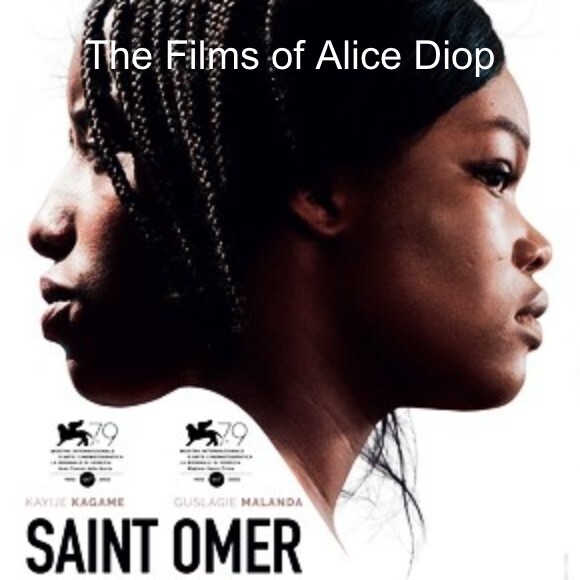

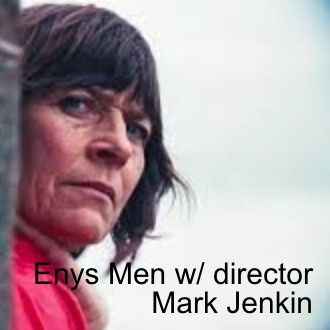
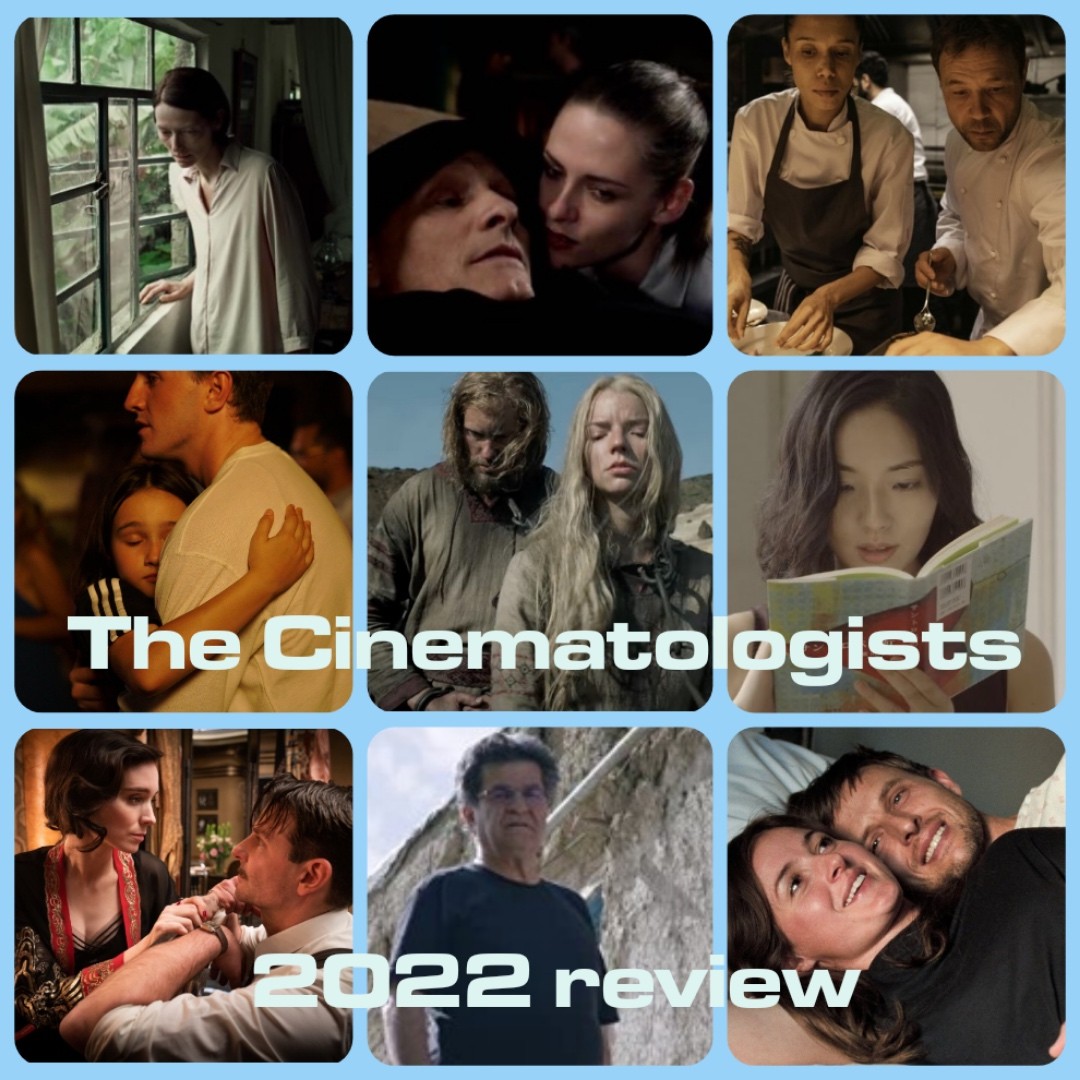

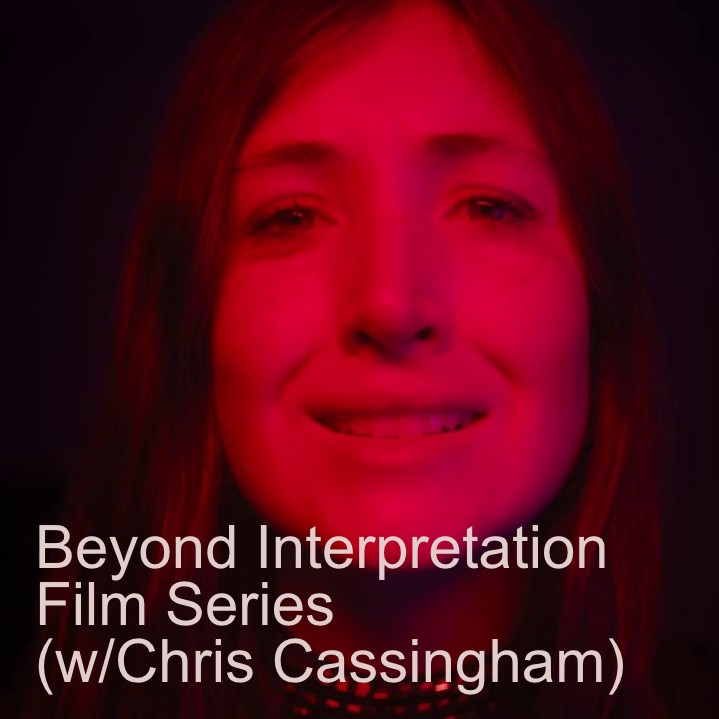
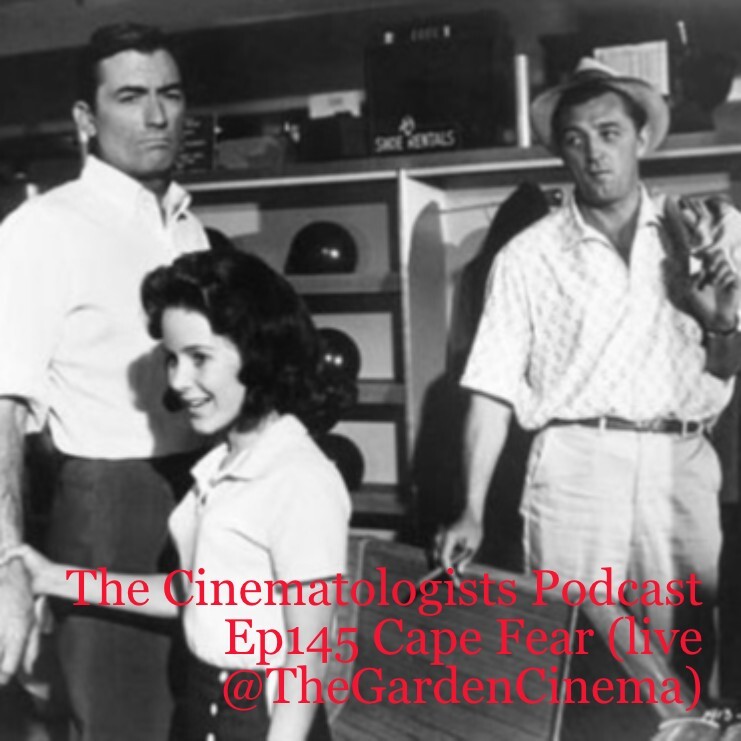



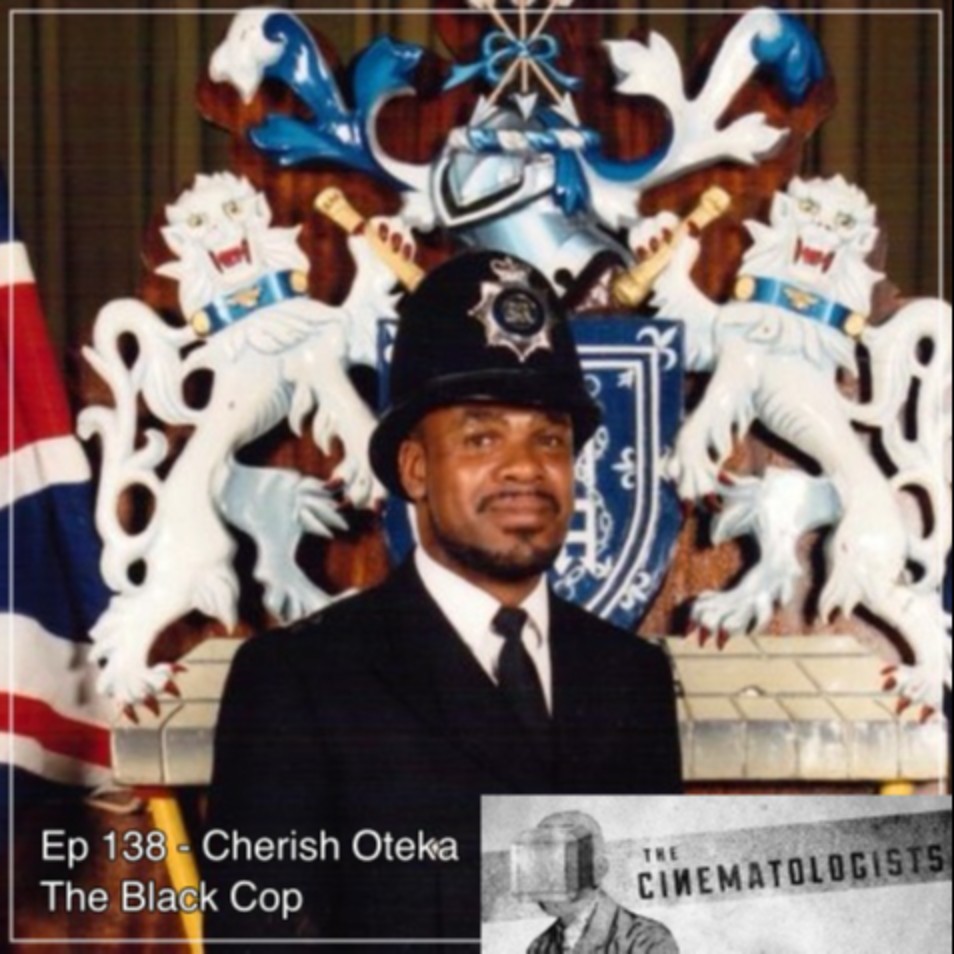
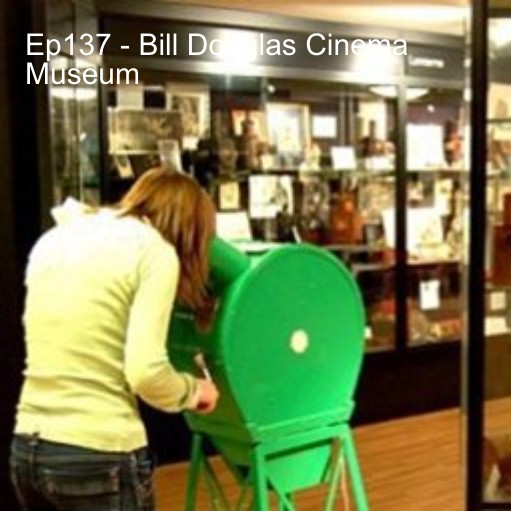



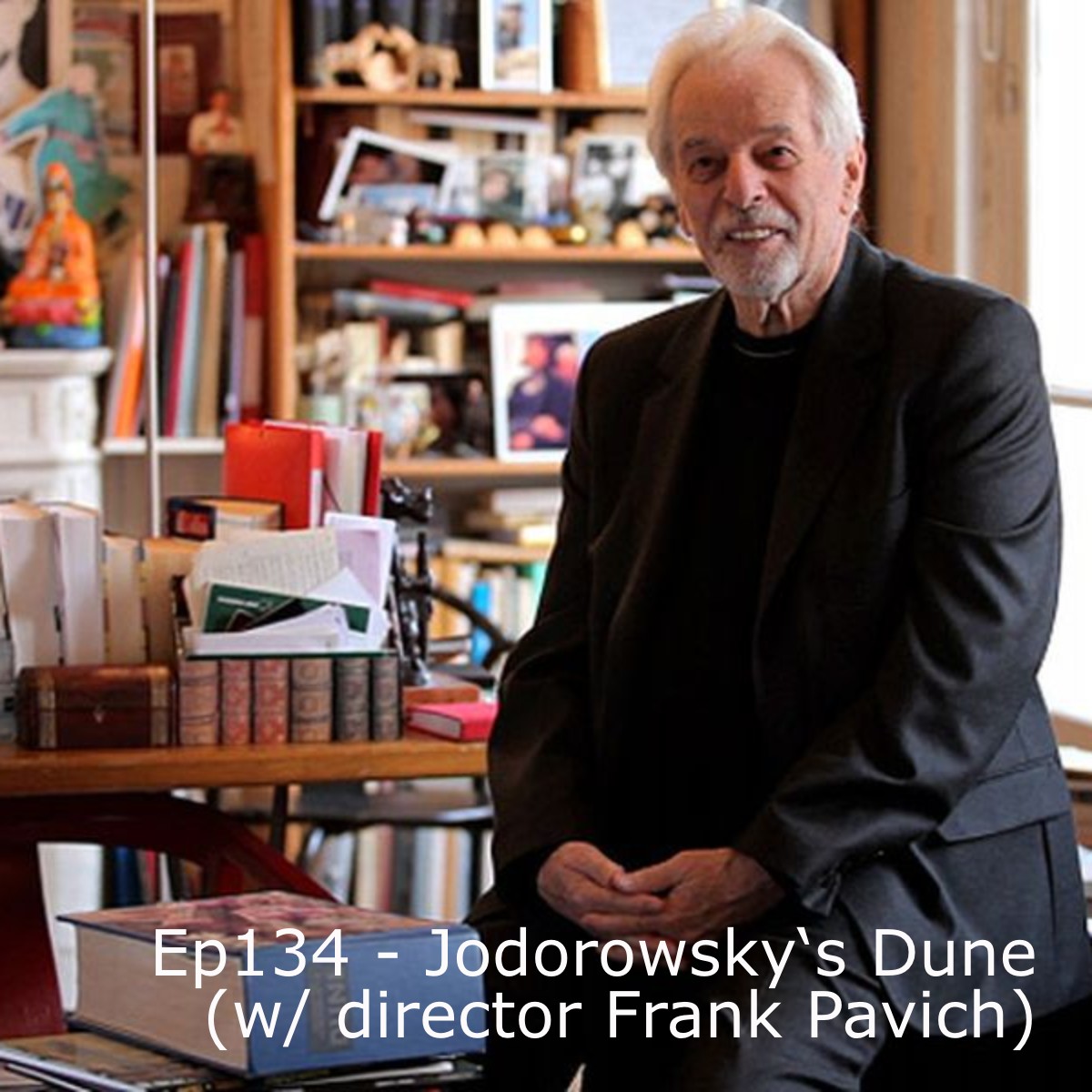



wonderful, I've just programmed Dragon Inn and Goodbye, Dragin Inn for my film night.